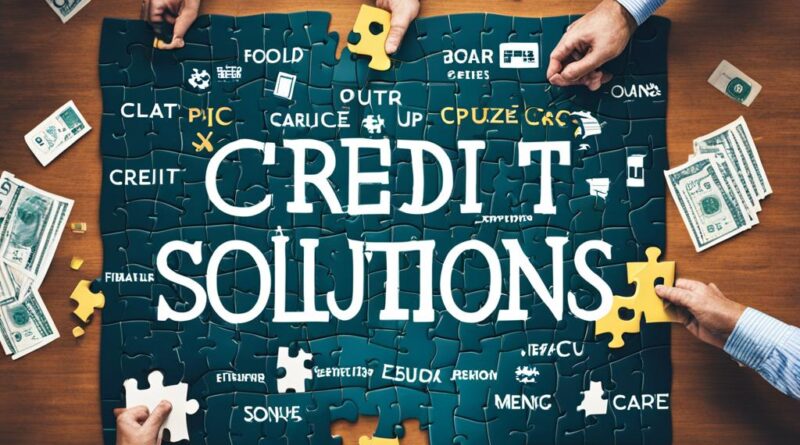Understanding Credit Resource Solutions Explained
If you’ve been contacted by Credit Resource Solutions (CRS), it’s crucial to understand what this company is, how they operate, and your rights when dealing with them. CRS is a UK-based debt recovery agency that typically contacts individuals through phone calls and letters to collect outstanding debts on behalf of their clients. This article provides a comprehensive overview of Credit Resource Solutions, aiming to clarify your doubts and inform you of the best strategies for managing your situation with CRS.
Key Takeaways
- CRS is a legitimate UK-based debt collection agency operating within legal bounds.
- Understanding your rights and CRS’s limitations is essential for effective communication and negotiation.
- Verify the legitimacy of any debt before engaging in payment plans or other actions.
- Seeking help from reputable organizations like StepChange UK and Citizens Advice is highly advisable for managing debt and regaining financial control.
- An Individual Voluntary Arrangement (IVA) may offer a viable solution for settling your debts, depending on your financial circumstances.
Demystifying Debt Recovery: How Credit Resource Solutions Operate
Credit Resource Solutions (CRS) primarily focuses on debt collection, working on behalf of various creditors to recover outstanding payments. In this section, we will explore the services CRS offers, outline the process they follow to collect debts, and discuss engagement strategies for debtors facing CRS communication.
Services Provided by CRS
As a debt collection agency, CRS acts as the mediator between creditors and debtors. Their clients range from utility companies to retailers, and they may take over the debt to pursue repayment. In providing their Credit Resource Solutions services, they adhere to the regulations set by governing bodies such as the Financial Conduct Authority (FCA) and the Credit Services Association (CSA), ensuring that their recovery approaches are legally compliant.
CRS Debt Collection Process
A critical aspect of how Credit Resource Solutions work is their debt collection process, which involves a series of communications with debtors. The process typically begins with CRS explaining the debt amount and providing options for repayment. They can accommodate various payment methods, including through their online portal. This flexibility makes it easier for debtors to find a suitable option for settling their outstanding debts.
Engagement and Communication with Debtors
When first contacted by CRS, it’s essential for individuals to take a proactive and knowledgeable approach in understanding their debt, finances, and available resources. To make the most out of the provided credit resource solutions tips, debtors should verify the legitimacy of the debt, discuss their financial circumstances with CRS, and start negotiating a feasible repayment plan. Maintaining a transparent and timely relationship with CRS is crucial for avoiding potential legal actions like a County Court Judgment (CCJ).
In conclusion, understanding the nature of CRS, their services, and the collection process is vital in effectively navigating your communication with the company. By leveraging the provided benefits of credit resource solutions, you can regain control of your finances and minimize any adverse effects on your credit rating.
What is Credit Resource Solutions: Unveiling the Agency Behind the Name
Credit Resource Solutions, commonly known as CRS, is a legitimate debt collection agency located in Halifax, UK, with the company number 04690879. Their primary function is to recover outstanding debts for various companies, including utility and telecoms providers. CRS is known to initiate contact with debtors by sending letters and making phone calls on behalf of their clients. As a member of the Credit Services Association (CSA), CRS is obligated to adhere to a stringent code of ethics that ensures fair treatment of debtors.
Understanding the role and methods of CRS can help alleviate some of the stress and uncertainty experienced when dealing with debt collection efforts. It is essential to recognize that while CRS is authorized to collect debts, they do not possess the same powers as bailiffs. Being aware of this distinction can be crucial in handling the situation appropriately.

Consulting a credit resource solutions guide or covering some credit resource solutions FAQs may provide useful insights about CRS and their practices, enabling debtors to discern the difference between a valid debt collection attempt and an illegitimate claim. In doing so, individuals can confidently navigate the debt collection process and adopt an informed approach in their interactions with CRS.
- Verify the legitimacy of the debt before engaging in further communication.
- Be informed about your rights during the debt collection process.
- Remain transparent and maintain open lines of communication with CRS.
- Reach out to financial advice organizations for support.
- Understand the difference between the powers of debt collectors and those of bailiffs and enforcement agents.
By familiarizing oneself with the roles and limitations of CRS through reliable credit resource solutions guides and other resources, debtors can develop a clear understanding of their options when navigating the debt collection process. This can empower individuals to proactively engage with CRS, safeguard their rights, and potentially negotiate favorable outcomes for themselves and their financial well-being.
Understanding Your Rights and CRS’s Limitations
While Credit Resource Solutions (CRS) is a genuine debt collection agency, it is crucial to understand your rights and their limitations. By doing so, you can effectively navigate discussions with CRS representatives and avoid any pitfalls associated with credit resource solutions rights.
First and foremost, request evidence of the debt and refrain from making payment promises over phone calls. If you have any concerns about CRS’s tactics, it is within your authority to report them since they are bound by specific regulations and must operate under the rule of law.
Keep all communication with CRS documented in writing to ensure future reference and validation purposes. This practice is critical for both understanding credit resource solutions and safeguarding your rights.
CRS’s process starts with determining the debt owed and follows through with attempts to agree on a repayment structure. However, they cannot forcibly enter your home or seize property without your consent, a vital aspect of credit resource solutions rights. If you believe CRS proposes unreasonable demands or if the debt is challenged, the right course of action is to dispute the claim, which might require legal advice.
To provide a more in-depth understanding of your rights and CRS’s limitations, we have compiled the following table that briefly outlines their abilities and restrictions.
| CRS Abilities | CRS Limitations |
|---|---|
| Determine the debt owed | Cannot forcibly enter your home |
| Attempt to agree on a repayment structure | Cannot seize property without consent |
| Communicate with debtors through phone calls and letters | Must comply with specific regulations and laws |
Being informed of your rights and CRS’s limitations is crucial when dealing with debt collection and ensuring your credit resource solutions rights are respected. It will empower you to better assess your situation and make informed decisions, leading to a more accurate credit resource solutions review.
Strategies for Navigating CRS Collection Attempts
If you find yourself facing credit resource solutions collection efforts, it’s crucial to remain proactive in resolving your debt obligations. The following strategies will guide you through each step of the CRS negotiation process, from the initial contact to setting up a repayment plan or disputing the debt.

Dealing with Initial CRS Contact
When CRS first reaches out to you, stay calm and take a level-headed approach. Start by verifying whether the debt is yours and requesting detailed evidence from CRS. Engage responsibly with CRS by demonstrating your willingness to understand the debt and consider possible solutions, such as payment plans. Ensuring clear communication at this stage is one of the most important credit resource solutions tips for a favorable outcome.
Setting Up a Payment Plan
CRS is typically open to negotiating realistic settlements, which can involve either partial payments or installment plans. By working with the CRS debt collection agency, it is possible to find a mutually beneficial resolution. Develop an affordable repayment plan based on your current financial situation, and be transparent with CRS about your limitations and requirements. This proactive engagement helps you to navigate credit resource solutions collection more effectively.
Mitigating Actions for Disputed Debts
If you dispute or deny the debt, it is essential to seek legal advice on how to proceed correctly. Ignoring CRS in this situation could escalate the matter, potentially leading to court action and a County Court Judgment (CCJ). It is important to remember that CRS agents are not bailiffs and have no rights to enter your property or seize goods. By consistently communicating with CRS, you can often reach a mutually agreeable resolution without the need for further legal intervention. Following these strategies for credit resource solutions can help you construct a viable plan to address your debt obligations while protecting your rights.
Conclusion
Credit Resource Solutions serves as a mediator between creditors and debtors, managing the recovery of debts through fair and legal methods. Successfully navigating your dealings with CRS involves understanding your rights, requesting proof of debt, considering repayment options, and maintaining clear communication. Assistance from organizations like StepChange and Citizens Advice can provide guidance, offering a layer of support in the face of debt resolution challenges.
Court actions and County Court Judgments (CCJs) should be considered a last resort as they can often be averted through negotiation and dialogue. Debt collection remains a complex matter, so staying well-informed and proactive is crucial when managing your financial wellbeing in relation to CRS. Utilizing resources like a credit resource solutions guide can further aid in understanding the process and benefits of resolving debt obligations.
In summary, when facing the challenges of CRS collection attempts, it’s essential to remain vigilant, educated, and engaged in the process, transitioning to a more secure financial standing with minimal stress. By addressing your financial responsibilities, examining the credit resource solutions review process, and seeking help where necessary, you pave the way towards a more stable financial future.
FAQ
What is Credit Resource Solutions?
Credit Resource Solutions (CRS) is a UK-based debt collection agency that specializes in recovering outstanding debts on behalf of various companies, including utility and telecoms providers.
How does CRS contact debtors?
CRS typically contacts debtors through letters and phone calls to initiate communication regarding the outstanding debt and possible repayment solutions.
What services do Credit Resource Solutions provide?
CRS’s primary service is debt collection. They act on behalf of various creditors, such as utility companies and retailers, to recover outstanding payments.
Are there any limitations imposed on CRS?
Yes, CRS is bound by specific regulations and must adhere to guidelines set by bodies like the Financial Conduct Authority (FCA) and the Credit Services Association (CSA). They cannot forcibly enter your home or seize property without consent.
How can debtors effectively deal with CRS?
Debtors can effectively handle CRS by understanding their rights, demanding evidence of the debt, engaging in clear communications, and considering repayment strategies.
What should I do if I’m contacted by CRS for the first time?
If contacted by CRS for the first time, remain calm, verify whether the debt is yours, request detailed evidence from CRS, and express your willingness to understand the debt and explore possible solutions like payment plans.
How do I set up a payment plan with CRS?
Responsibly engage with CRS and discuss your financial circumstances openly to negotiate a feasible repayment plan. CRS is open to negotiating realistic settlements with debtors, such as partial payments or installment plans.
How can I seek assistance when dealing with CRS?
You can seek help from reputable organizations such as StepChange UK, Christians Against Poverty, Citizens Advice, and the Credit Services Association to manage debt and regain financial control.
What should I do if the debt CRS claims I owe is disputed or denied?
If you dispute or deny the debt, seek legal advice on how to proceed correctly. Ignoring CRS could escalate the situation, potentially leading to court action and a County Court Judgment (CCJ).

